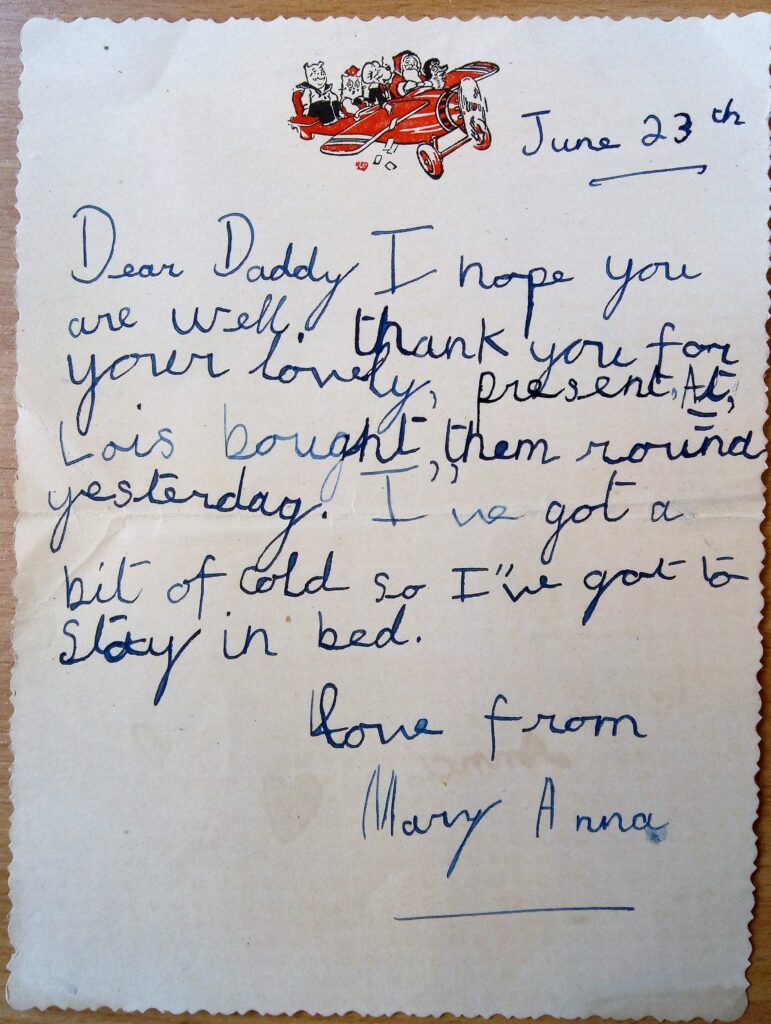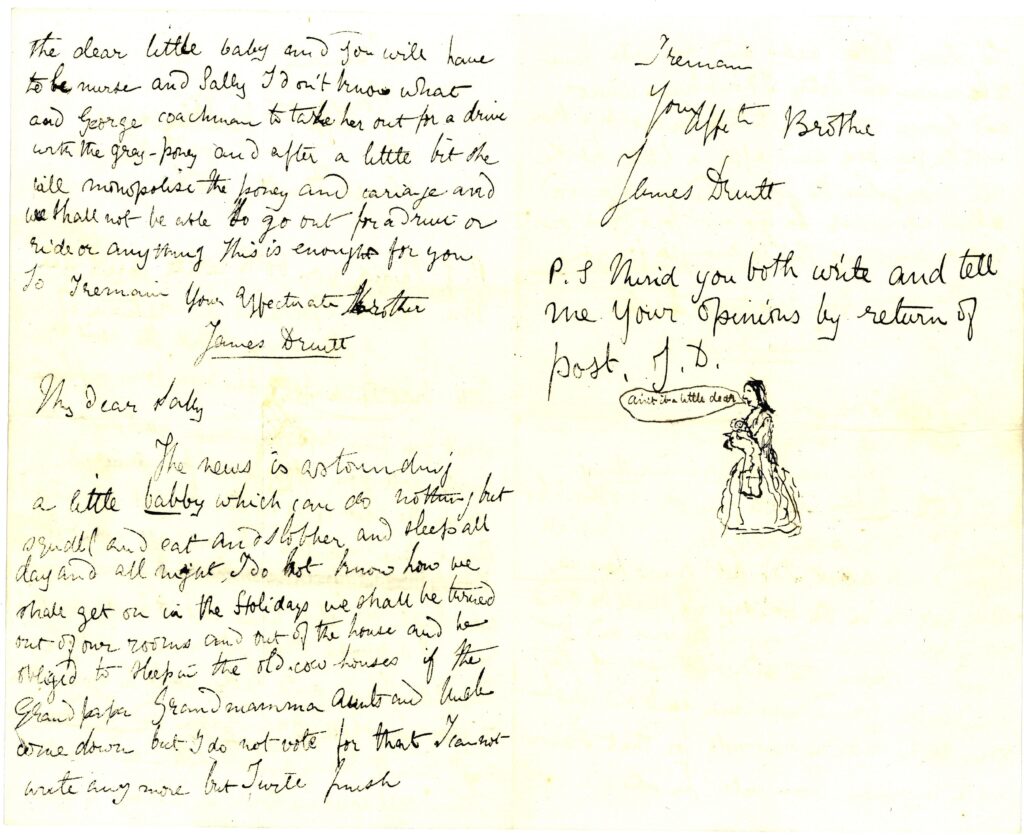This February we’d like to think beyond the exclusivity of romantic love and open our hearts to all the affection and emotion which can be conveyed by a handwritten letter. Until the mid-twentieth century letters were the primary means of contact for people living more than a few miles apart and the pleasure of receiving a letter or note was often enormous – indeed the wish to correspond was a driver of the growth in literacy. Letters reassured and made practical arrangements and when the post arrived up to five times a day could move quickly enough to write a note in the morning inviting someone to dinner and receive a reply by lunchtime.
The Dorset History Centre contains within its walls the tender outpouring of many a heart, and if Covid–19 hadn’t broken over us we would have shared a selection of correspondence in two ‘Letters Live’ shows. We are now re-purposing the research which DHC volunteers undertook into letters written between 1870 and 1950 into a learning resource. This focuses on letters to and from children and will be rolled out via the Cultural Hub, a long–standing partner of DHC. We will share further information in due course!
—

Our youngest correspondents are children writing to their parents. This example, rather charmingly written on Christmas writing paper in June, from Mary Anna to her father, expresses her thanks for a gift. Given the paper, we can only guess that perhaps Mary Anne wasn’t such a frequent correspondent!
Dear Daddy,
I hope you are well. Thank-you for your lovely present. [] Lois brought them round yesterday. I’ve got a bit of a cold so I’ve got to stay in bed.
Love from
Mary Anna
—
Sometimes the letters have to tell a very sad story. In a letter from Freeland Filliter to his Mother-in-Law in 1852, he sorrowfully explains that his wife Rose has suffered a stillbirth:
Rose was confined this morning with a little girl but to our severe disappointment the poor little dear was born dead. I am however most thankful to God that my precious little wife is doing well, though fretting much at having experienced such a termination after a very suffering time. The event happened about ½ ??? she was taken ill last night. We had a very good careful and experienced nurse from Dorchester, the Mother of our Nurse Maid & Mr Hall the Medical Man.
I have just been with Rose – poor little dear – we both so much wished for a little girl – but we must take our lot as it is bestowed by a wiser Providence which disposes of events for us... She desires her kindest love to her mother and all of you.
I have just taken dear little Sydney, a picture of health and infantine grace and beauty up to his dear Mama to cuddle and caress her as is his wont.
—

The arrival of a new ‘babby‘ in the house can give rise to humour, as in this letter from James Druitt to his sisters circa 1862:
My Dear Sally
The news is astounding a little babby which can do nothing but squall and eat and slobber and sleep all day and night I do not know how we shall get on in the holidays we shall be turned out of our own rooms and out of the house and be obliged to sleep in the old cow houses if the Grandpapa and Grandmama Aunts and Uncles come down but I do not vote for that I cannot write any more but I will finish
I remain
Your affectionate brother
James Druitt
PS Mind you both write and tell me your opinions by return of post JD
Personal correspondence is one of the most accessible forms of communication you can find in the collections at DHC and you may wish to browse our catalogue for further examples.

